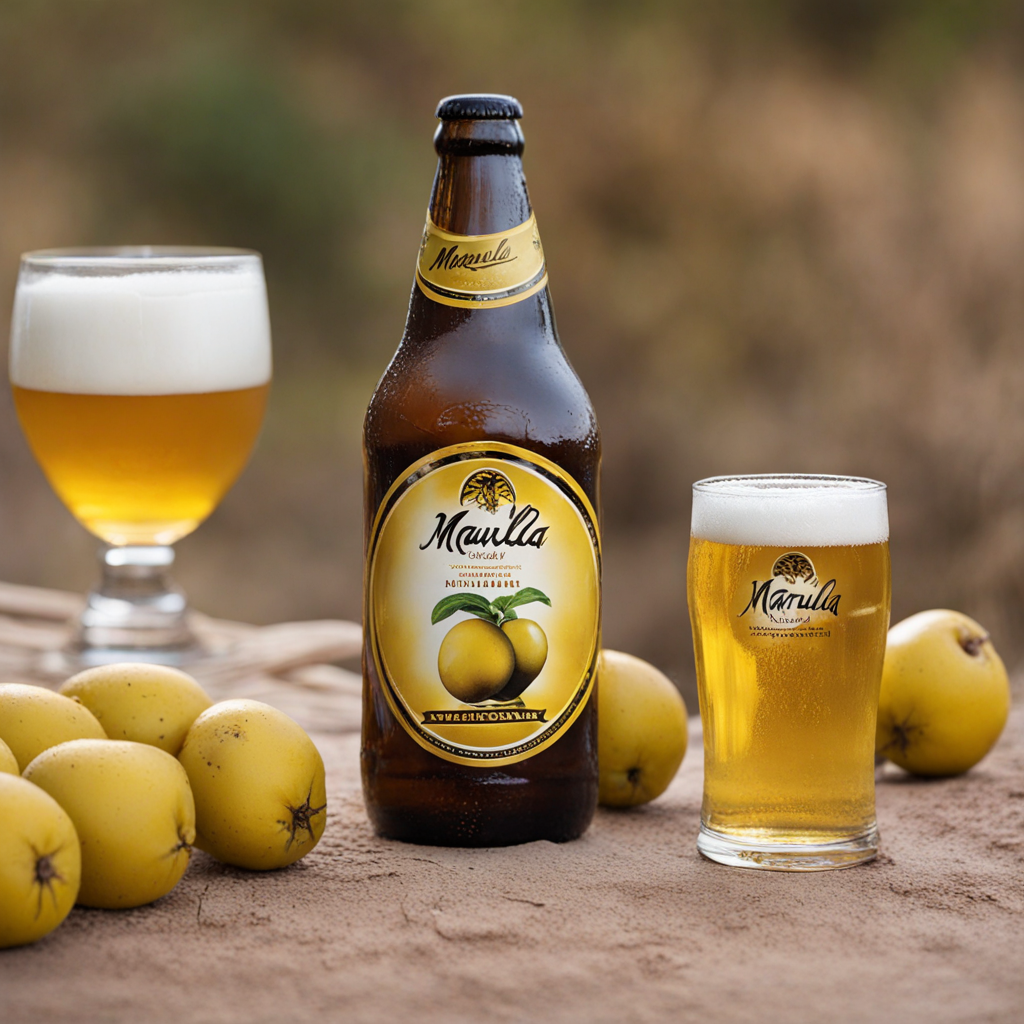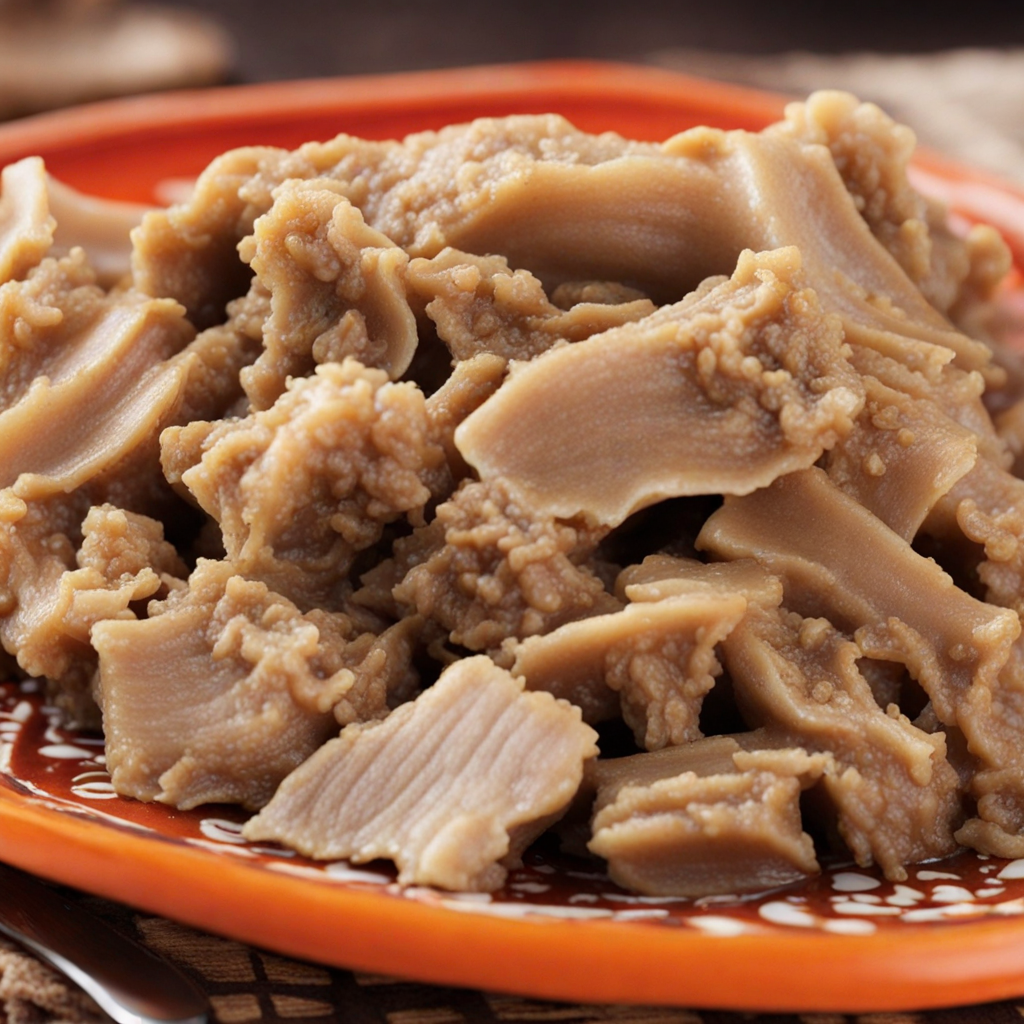Marula Beer
Marula Beer is a unique and traditional beverage from Botswana, crafted from the indigenous marula fruit, which is celebrated for its rich flavor and cultural significance. The marula fruit, with its sweet, tangy taste, is harvested once it ripens, typically during the late summer months. The brewing process involves fermenting the fruit, which gives the beer a distinctive fruity aroma and a slightly hazy appearance. The resulting drink is often described as refreshing and slightly effervescent, making it a delightful choice for those seeking a novel taste experience. The flavor profile of Marula Beer is a harmonious blend of sweet and tart notes, with hints of citrus and a mild earthiness that reflects the rich soil of the region. It carries a light body, making it easy to enjoy on a warm day, and pairs wonderfully with traditional Botswana dishes, such as seswaa (slow-cooked meat) or pap (a maize porridge). The beer's natural sweetness complements the savory flavors of the local cuisine, creating a balanced and satisfying meal. Beyond its taste, Marula Beer is steeped in cultural significance, often enjoyed during celebrations and communal gatherings. It embodies the spirit of Botswana, bringing people together to share stories and create memories. Sipping on this beer not only offers a taste of the marula fruit but also a glimpse into the vibrant traditions and hospitality of the people in Botswana. For any adventurous foodie looking to explore new flavors, Marula Beer is a must-try that encapsulates the essence of its homeland.
How It Became This Dish
Birra ya Marula: A Cultural and Culinary Journey Through Botswana Origins Birra ya Marula, literally translating to "Marula beer" in Setswana, is a traditional alcoholic beverage that hails from Botswana, a country steeped in rich cultural heritage and natural beauty. The Marula tree (*Sclerocarya birrea*), which is indigenous to southern Africa, is the cornerstone of this beloved drink. The tree is not only significant for its fruit, which is known for its nutritional value and health benefits, but also for its cultural importance among various ethnic groups in the region. The Marula fruit is small, round, and yellowish when ripe, bursting with a sweet, tangy flavor. Traditionally, the fruit has been consumed fresh, but its fermentation process is what elevates it to the status of Birra ya Marula. The preparation of this drink is often communal, reflecting the social nature of its consumption. In many rural communities, the Marula fruit is harvested at the height of its season, typically between January and March, when the trees are heavy with ripe fruit. Cultural Significance Birra ya Marula is more than just a drink; it is a symbol of community and celebration. In Botswana, the Marula fruit is often associated with cultural festivities, particularly during the harvest season. The act of brewing Birra ya Marula is an age-old tradition that brings families and communities together, serving as a means to strengthen social bonds. The preparation process is typically performed by women, who have passed down the knowledge and techniques through generations. This aspect of brewing is essential in understanding the gender dynamics within many communities in Botswana. Moreover, Birra ya Marula plays a significant role in various cultural rituals and ceremonies. It is commonly served during weddings, funerals, and other important gatherings, acting as a medium for toasting to health, prosperity, and remembrance. The drink is often accompanied by traditional songs and dances, thus weaving itself into the fabric of Botswana's cultural identity. The Brewing Process The brewing of Birra ya Marula is a labor-intensive yet rewarding process. The first step involves gathering ripe Marula fruits, which are then crushed to extract the juice. This juice is mixed with water and left to ferment naturally. The fermentation process can take several days, during which the sugars in the juice convert to alcohol, creating a beverage with a distinctive flavor profile. Traditionally, the fermentation occurs in large clay pots, which are often buried underground to maintain a stable temperature. The drink is typically cloudy and has a low alcohol content, usually around 2-4%. The flavor is often described as fruity and refreshing, with a unique tang that reflects the characteristics of the Marula fruit itself. Historical Evolution Birra ya Marula has a storied history that reflects broader social, economic, and political changes in Botswana. For centuries, it has been a staple in local diets and an integral part of social life. However, the advent of colonialism in the late 19th and early 20th centuries brought significant changes to the landscape of traditional brewing. During this period, colonial authorities imposed regulations on the production and sale of alcoholic beverages, which significantly impacted local brewing practices. Despite these challenges, the resilience of the communities in Botswana allowed traditional brewing methods to persist. In fact, the popularity of Birra ya Marula began to resurface in the latter half of the 20th century as new social movements emerged, emphasizing the importance of cultural heritage and traditional practices. This revival coincided with Botswana’s independence in 1966, a time when the nation sought to reclaim its identity and promote indigenous customs. The 1990s marked a significant turning point for Birra ya Marula, as interest in traditional beverages grew not only domestically but also internationally. As Botswana began to embrace its cultural heritage, the demand for locally produced beverages increased. This resurgence was aided by the global trend of specialty craft beers and artisan products, leading to a renewed appreciation for traditional brewing methods. Contemporary Context Today, Birra ya Marula is experiencing a renaissance, with both local and international recognition. Craft breweries in Botswana have begun to incorporate Marula into their offerings, introducing innovative variations of the traditional brew. These contemporary adaptations often aim to blend traditional techniques with modern brewing practices, resulting in a product that appeals to both local palates and international markets. Moreover, the Marula fruit has garnered attention beyond just its use in brewing. It is now recognized for its nutritional benefits, high vitamin C content, and potential health properties. The fruit's oil, extracted from the kernels, is also gaining popularity in cosmetics and culinary applications, further enhancing the economic potential of the Marula tree. The rise of eco-tourism in Botswana has also played a role in promoting Birra ya Marula. Visitors to the country are increasingly interested in experiencing local traditions and flavors, leading to a greater demand for authentic cultural experiences, including the tasting of traditional brews. Many local guides and artisans are now offering workshops and tasting sessions, allowing tourists to engage with the brewing process and learn about its significance within the community. Conclusion Birra ya Marula is more than just a beverage; it embodies the spirit and resilience of the people of Botswana. Its history reflects the cultural significance of the Marula tree and the communal traditions surrounding its preparation. As Botswana continues to navigate the complexities of modernity while holding onto its rich heritage, Birra ya Marula stands as a testament to the enduring power of tradition in shaping identity and community. In an increasingly globalized world, where culinary traditions often become homogenized, Birra ya Marula serves as a reminder of the importance of preserving local customs and flavors. As it evolves and adapts to new contexts, it remains a cherished part of Botswana's cultural landscape, inviting both locals and visitors to partake in its rich history and vibrant social fabric.
You may like
Discover local flavors from Botswana







